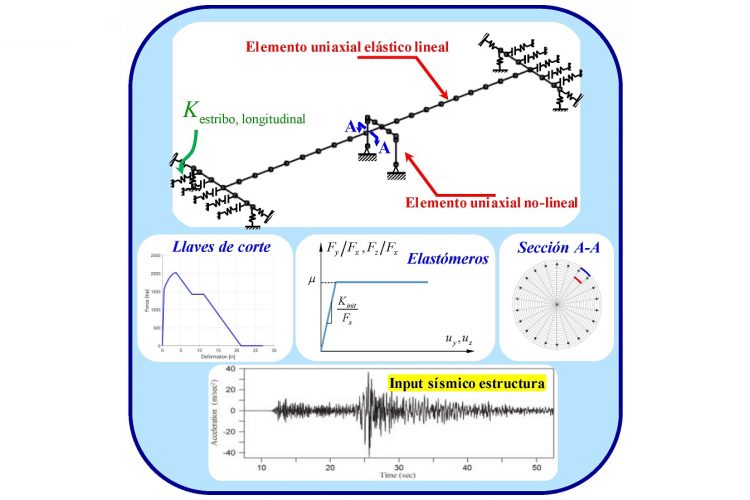Funding agency: National Commission for Scientific and Technological Research (CONICYT)
Grant: FONDEF IDeA ID18I10103 (2019-2021)
Project Director: Cesar Pasten
Project Co-Director: Rodrigo Astroza
Researchers: Ramiro Bazaez, Francisco Hernandez, Felipe Ochoa
Bridge structures are critical components of transportation networks and have been recognized as among the most vulnerable structures to natural disasters, especially to earthquakes. In the 2010 Mw=8.8 Maule Earthquake, from a total stock of about 6000 bridges located in the affected area, 211 public and 91 concessioned bridges were damaged, representing approximately 3% of the total inventory of bridges in Chile. This project aims to improve the resiliency of Chilean bridges subjected to earthquakes by developing guidelines to complement the seismic provisions currently available in the Manual de Carreteras, the official document including the prescriptions for the analysis and design of bridges in Chile.
It is imperative to develop a methodology to analyze the seismic performance of Chilean bridges including the effects of soil-structure interaction and the interactions between different structural components of the bridge. The project will propose a simplified methodology of seismic analysis for skewed and non-skewed bridges with a total number of spans ranging from two to five. Tridimensional nonlinear time-history analysis procedures will be implemented to estimate the seismic behavior and demand on critical bridge components. The guidelines will also include the definition of the seismic hazard related to the main seismogenic sources (i.e., input ground motions) and the main elements and their parameters to properly incorporate the interaction between the soil and the structural components (e.g, deck-abutment interaction).
